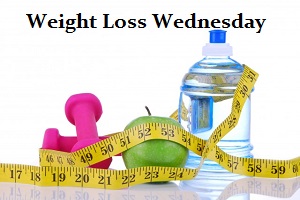There are a ton of benefits to losing those last 10 pounds—from having a healthier heart to feeling better in a bikini! But did you ever wonder exactly what happens to your bod when you do drop that weight?
According to Vicki March, M.D., the medical director of the lifestyle program of the Weight Management Center at Magee-Womens Hospital, of the University of Pittsburgh Medical Center, exactly what happens internally when you lose 10 pounds depends on a few key factors: how overweight you were to begin with, how quickly you lost the weight and what kind of a diet you went on to trim down.
“Most of your body is made out of water, and of course, fat and muscle,” explains Dr. March. When you go on diet that either restricts your caloric intake too much or cuts out an entire category of food, like a zero-carb diet, it’s possible to see the scale go down by five to 10 pounds in one week, but Dr. March says that’s usually not real fat loss; it’s water. It’s much healthier, she says, to “reasonably” reduce calories while staying moderately active, allowing for slower, steadier weight loss.
“On any diet, after you’ve lost some water weight, what you lose next is either fat or muscle,” says Dr. March. Ideally, she says, you want to lose only fat, and no muscle. Not only does losing muscle mass cause your metabolism to drop, because muscle burns more calories than fat, but you become susceptible to bone loss and your immune capacity is decreased, she says.
“Even better is to actually increase your muscle mass and lose to fat at the same time,” says Dr. March. You can only achieve this, she says, with a very balanced diet that includes enough protein (the building block of muscle) and doesn’t make you lose too much weight too fast (as consuming too few calories would do), and by incorporating resistance training into your workout schedule. “If you’re not exercising, you’ll start digging into that muscle mass, and that’s not good,” says Dr. March.
So assuming you lose weight the healthy way, with a balanced diet plan and plenty of exercise, after you lose some water weight, says Dr. March, your fat cells will actually start shrinking! But you’re not really losing the actual fat cells: “Research seems to point to us acquiring most of our fat cells by adolescence,” Dr. March explains. “So when you lose weight, the fat cells you have get smaller, each cell holding less fat, and when you gain weight they get bigger.”
Most women, says Dr. March, tend to have most of their weight in the lower part of their body, so that’s where you’ll probably start losing fat first. Unlike losing muscle, losing fat doesn’t affect your metabolism, but, says Dr. March, you do have to be more careful about what you eat even after you’ve lost the weight. “We don’t know exactly why, but when you lose weight, the various hormones that control your hunger and desire to eat seem to kick in more, encouraging you back to your own set point.”
In other words, Dr. March says, if you want to maintain your new weight of, say, 140 pounds, you will probably need to eat fewer calories than someone who is already 140 pounds and just wants to maintain her weight.
Doesn’t seem totally fair, right? But it’s worth it! Aside from feeling better, dropping even five percent of your body weight can positively impact your health, says Dr. March. “You can reduce your risk of diabetes, hypertension and heart disease,” she says.
Are you ready to make a change to get healthy? Are you ready to start a doctor supervised weight loss program that really works? No shakes, no points, and no crazy exercise routines! Just a simple plan, supplements and 12 weeks are all you need to lose 10% of your current weight and change your life for the healthier! To learn more about our new ChiroTHIN weight loss program, click here, or call our office today at (304) 263-4927 to schedule an appointment to start the ChiroTHIN program.Dr. Terry Chambers is a Board certified chiropractor and acupuncturist, licensed in WV, and trained to perform functional medicine.
Source: http://www.self.com/flash/diet-blog/2012/07/what-really-happens-to-your-bo/

